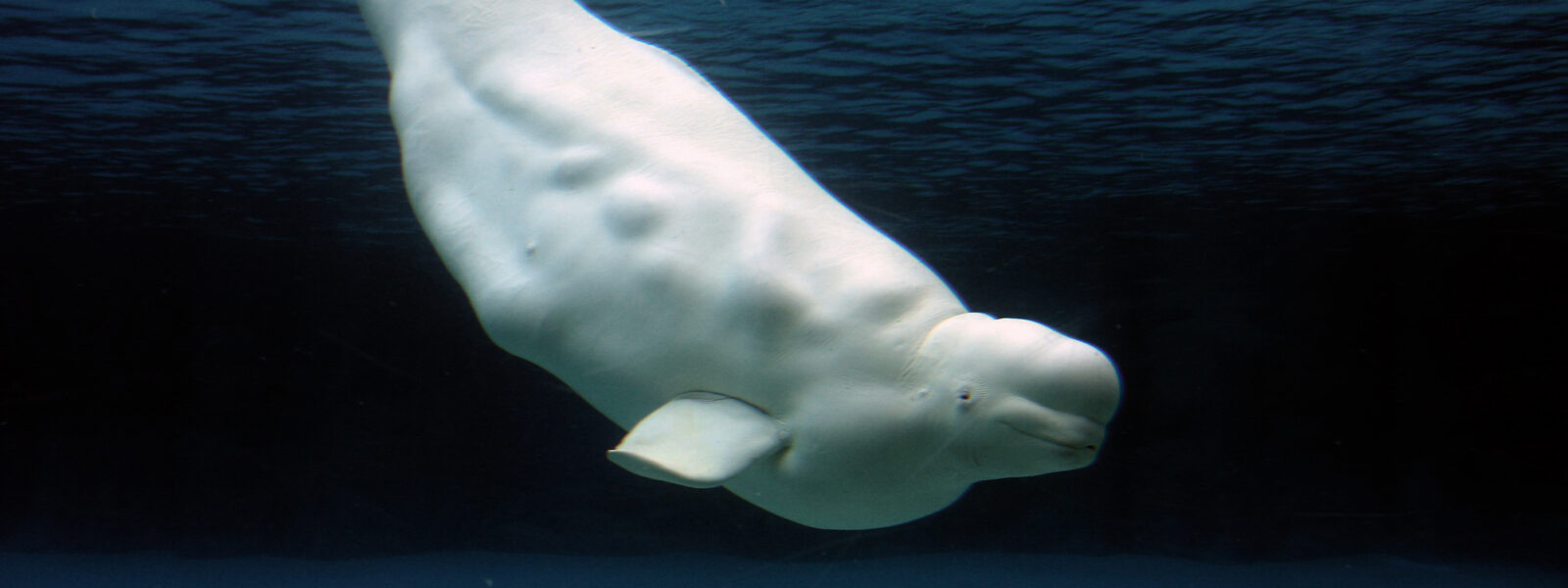
Thousands Object to Import of Five Beluga Whales
The comment period has closed for the proposed permit for Mystic Aquarium in Connecticut to import five captive beluga whales from Canada’s notorious MarineLand. We are pleased to report that thousands commented, with a large majority opposing the import permit.
The US National Marine Fisheries Service (NMFS) received 9,532 comments on the proposed permit, more than two-thirds of which were in opposition. While NMFS does not count opponents and supporters of permits like an election, the opposition is still a clear signal to NMFS and Mystic Aquarium that the permit is not popular.
Extensive comments were prepared by Dr. Naomi Rose and several lawyers and submitted by the Animal Welfare Institute (AWI), with support from a number of animal welfare and environmental organizations, including the International Marine Mammal Project (IMMP) of Earth Island Institute, Whale and Dolphin Conservation, People for Ethical Treatment of Animals, and others. These comments form the backbone of the claims that the import of these five beluga whales would be illegal and immoral.
In addition to signing on in support of the AWI comments, we (IMMP) filed our own comments on why NMFS should not issue any import permit. We were also helped by legal counsel.
The stated purpose for the import proposal is to conduct research on the beluga whales, but the hidden purpose is to bring in captive beluga whales to the United States to breed with existing captives.
Issuing the permit would circumvent the new Canadian law prohibiting captive breeding of any captive cetaceans. Under the new Canadian law, whales and dolphins can be moved from Canada to other countries, but the purpose must be in the interests of the whales. MarineLand, located in Niagara Falls, has been plagued by complaints about the facility, but having the belugas breed in captivity in the US is the true ultimate goal, not beluga whale welfare.
In addition, the five beluga whales would be on public display, but that normally requires a separate permit under the provisions of the Marine Mammal Protection Act. Thus, the permit request to experiment on beluga whales is an end run around the permitting process for public display of beluga whales.
It is unclear what good the research might do the beluga whales in the wild. Any important research could be done at MarineLand and other facilities, rather than putting five beluga whales through the stress of transfer to Mystic Aquarium.
Our Russian colleagues conducted some research on beluga whale exports, concluding that the parents of these five beluga whales were likely illegally caught and exported to Canada in violation of Russian laws. IMMP reported this in our detailed comments to NMFS, as the Marine Mammal Protection Act prohibits import and display of animals and their progeny that were captured illegally in the wild.
NMFS will likely take many months to review the public comments and issue a final decision for the import. Under federal law, they must respond to substantive comments, which takes a while to compose.
The best place to house captive-bred beluga whales and other cetaceans is in spacious seaside sanctuaries, where the belugas can have a semblance of natural life, while they are still fed and receive medical care. Efforts are ongoing to establish such seaside sanctuaries.
We thank all the many people who responded to alerts from numerous organizations, including IMMP, to comment against the permit. Sending these five beluga whales to Mystic Aquarium for the purpose of breeding would only produce yet more beluga whales for lives of misery in small concrete tanks.
IMMP will report on this issue in the coming months to keep you informed.
